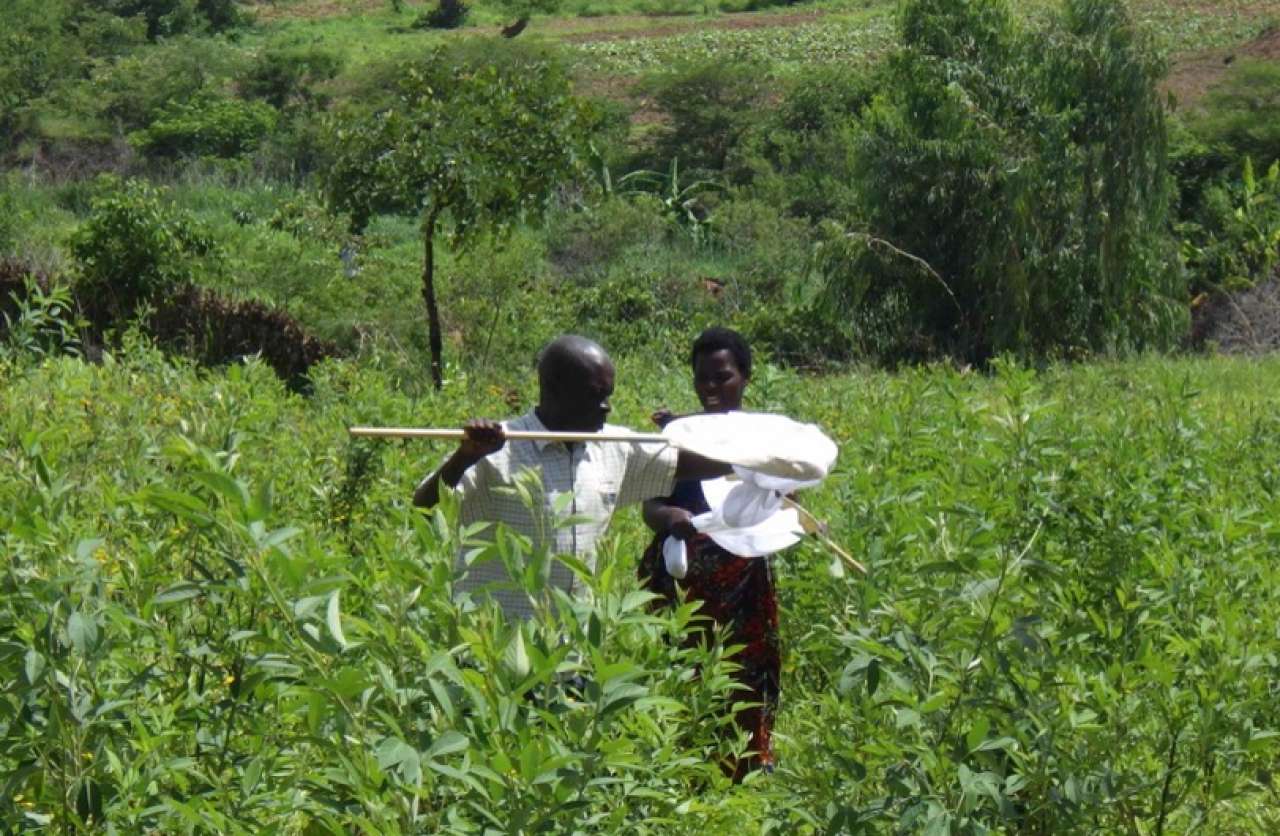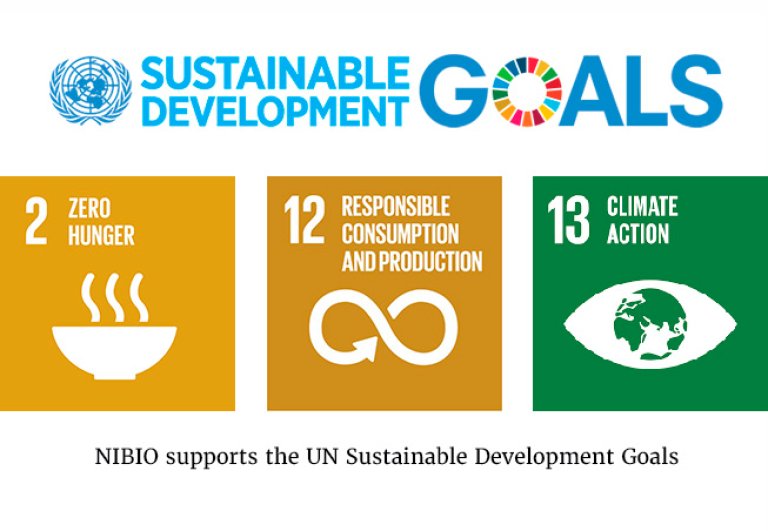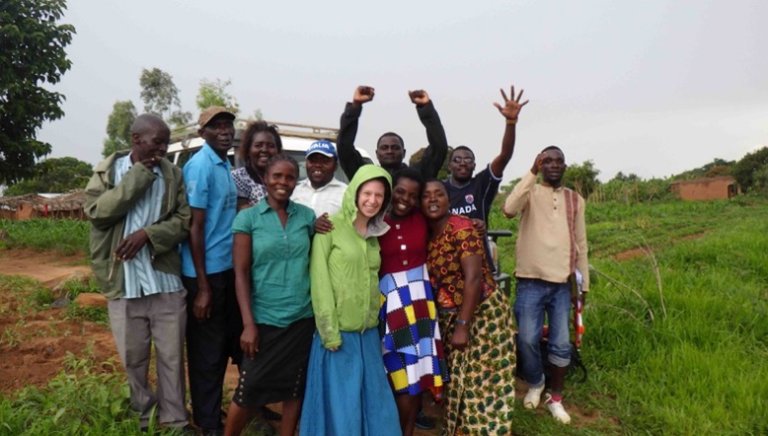Malawian farms set out to protect and enhance biodiversity

Farms4Biodiversity farmer promoters Innocent Mahone and Mwapi Mkandawire capturing bees. Photo: Aaron Iverson.
A new project in Malawi highlights agro-biodiversity and aims to find ways of protecting species that are crucial for sustaining agricultural production. “An important and timely initiative considering the recent UN report which states that one million species are currently at the risk of extinction,” research professor at NIBIO says.
The farmer-led agricultural research project, Farms4Biodiversity, will develop and use scenarios for ecological and ecosystem services in Malawi to find ways of protecting and enhancing agro-biodiversity. The project was launched in Helsinki, Finland on the 14th of May with a two day kick-off meeting for partners from several countries, including USA, Norway, Malawi, Canada and Germany.
Research professor at NIBIO Dr. Udaya Sekhar Nagothu, who will co-lead activities concerning muliti-actor participation, says that the project is timely in regard to the recent UN report stating that 25% of the global biodiversity is currently under threat.
“Malawi is one of the most vulnerable countries impacted by climate change and is particularly affected by frequent droughts that have seriously impacted food production and food security in recent years. Protecting biodiversity in agricultural landscapes is important for farming as bees, insects, soil microorganisms and so on are crucial for sustainable agricultural production,” he says.

Aims to reduce biodiversity loss and improve climate change adaptation
Farms4Biodiversity will build on previous work to support an evidence-based, multi-stakeholder research and policy process that will leverage agroecological principles to achieve multiple social- ecological benefits in Northern Malawi.
The project team and a multi-actor platform will develop and examine scenarios of land-use change and determine how agroecological practices at multiple spatial and temporal scales can buffer against the loss of biodiversity and ecosystem services from this change. The project also aims to identify breakpoints of landscape-level agroecological adoption above which biodiversity and ecosystem services are maximally retained.
In addition, Farms4Biodiversity will test how participatory scenario planning can enhance long-term community resilience and biodiversity under different land use scenarios and anticipated climate change impacts. The project will also explore new, innovative institutional and policy frameworks to enable use of agroecological practices to reduce biodiversity loss, sustain ecosystem services and improve climate change adaptation among farmers.
Bridging the gap between science and practice
Dr. Udaya Sekhar Nagothu says that taking a multi-actor and transdisciplinary approach is a key factor in regard to the project succeeding. To bridge the gap between science and practice, farmers will be actively involved in research activities and scenario planning. The project’s research team itself brings expertise in ecology, agroecology, entomology, sociology, geography, health, GIS, development studies, and policy.
“FARMS4Biodiversity will also contribute to broader policy discussions on the role of agroecology in supporting biodiversity, ecosystem services, livelihoods, and food security benefits in Sub-Saharan Africa and beyond,” he adds.
The findings in the project will have relevance for many regions of Sub-Saharan Africa and Asia where smallholder farming systems predominate and biodiversity is at risk from increased use of pesticides.
“In countries like Malawi, where the majority of the population are smallholders who cannot afford to buy fertilisers and other necessary inputs to maintain food production, agro-biodiversity is of huge importance. Addressing biodiversity conservation on farms and supporting ecosystem services should have a positive impact on agriculture and food production in Malawi and countries facing similar threats, thus contributing towards a more food secure future,” Dr. Nagothu says.
Contacts


Key facts about Farms4Biodiversity
Project coordinators: Rachel Bezner Kerr from Cornell University (USA) and Esther Lupafya from Soils, Food and Healthy Communities (Malawi)
Leader of WP4 Innovative platforms and stakeholder engagement: Udaya Sekhar Nagothu from NIBIO – the Norwegian Institute for Bioeconomy Research and Chiye Chafuwa from Lilongwe University of Agricultural and Natural Resources (Malawi)
Project duration: 2019-2022
Funding: NSF, the Research Council of Norway, Deutsche Forschungsgemeinschaft, NSERC CRSNG
Links
Farms4Biodiversity UN Report: Nature’s Dangerous Decline ‘Unprecedented’; Species Extinction Rates ‘Accelerating’
Contacts

